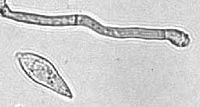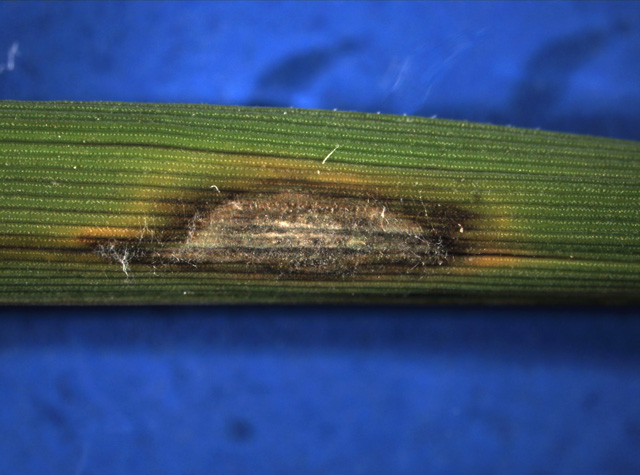Magnaporthe grisea: Difference between revisions
imported>Shridevi singh No edit summary |
imported>Shridevi singh No edit summary |
||
| Line 2: | Line 2: | ||
{{CZ:Biol_201:_General_Microbiology/EZnotice}} | {{CZ:Biol_201:_General_Microbiology/EZnotice}} | ||
{{Taxobox | {{Taxobox | ||
| color = | | color = green | ||
| name = ''Magnaporthe grisea'' | | name = ''Magnaporthe grisea'' | ||
A conidium and conidiogenous cell of ''M. grisea'' | A conidium and conidiogenous cell of ''M. grisea'' | ||
Revision as of 17:10, 14 April 2009
For the course duration, the article is closed to outside editing. Of course you can always leave comments on the discussion page. The anticipated date of course completion is May 21, 2009. One month after that date at the latest, this notice shall be removed. Besides, many other Citizendium articles welcome your collaboration! |
| Magnaporthe grisea
A conidium and conidiogenous cell of M. grisea | ||||||||||||||
|---|---|---|---|---|---|---|---|---|---|---|---|---|---|---|
 | ||||||||||||||
| Scientific classification | ||||||||||||||
| ||||||||||||||
| Binomial name | ||||||||||||||
| Magnaporthe grisea (L.) Lam. |
Description and significance
Magnaporthe grisea, a plant-pathogenic fungus, is the causal agent of rice blast disease which is one of the greatest pathological threats to rice crops. It was thought to be localized only in developing nations, however for the past decade it has emerged as a severe problem in the United States, more recently in California. Yearly, rice that can feed an estimated 60 million people is destroyed by this disease. M.grisea is a well adapted fungus that can attack and penetrate its host plant with ease. More importantly, this fungus can also infect other important agricultures such as cereals, wheat, rye, pearl millet, and barley. The disease that is cause is then referred as blight disease or blast disease. Furthermore, M.grisea is thought of as a model organism in studies of fungal phytopathogenicity and host-parasite interactions.

A typical eye-shaped lesion of rice blast disease on a U.S. rice cultivar.